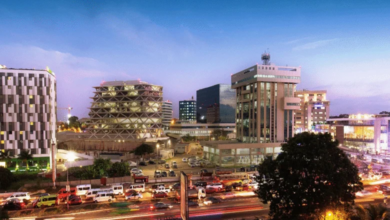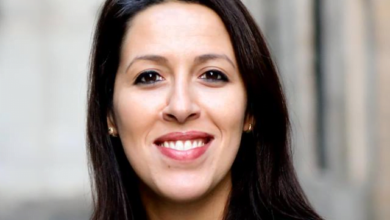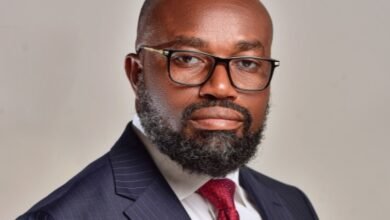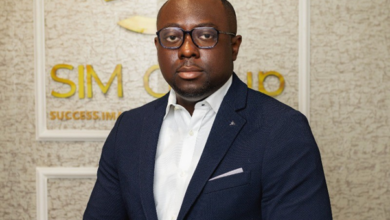Official development assistance : a new deal in the making?
At a time when $2.5 trillion a year must be mobilized to achieve the Sustainable Development Goals, official development assistance is more essential than ever. However, modalities need to be reviewed in order to initiate a « new deal » between donor and recipient countries. Analysis.
By Dounia Ben Mohamed
“We need to go beyond conventional forms of official development assistance,” recently urged Rémy Rioux, the Director General of the French Development Agency (AFD), on the celebration of the 80th anniversary of the public financial institution. This invitation to rethink official development assistance (ODA) is far from being limited to France. Established at the time of African independence, ODA must now be rethought in depth. Even more so in the context of the pandemic, which has led Africa to experience its first recession in a quarter of a century in 2020.

This is all the more true given that, while donor efforts have reached a historic level with the health crisis – $161.2 billion in aid recorded worldwide in 2020, up 3.5% in real terms over one year – this has not really benefited the continent: sub-Saharan Africa has seen the volume of subsidies granted by bilateral donors fall by 1% over the same period, to $31 billion (around 26 billion euros) according to the OECD.
In search of a new deal
While infrastructure needs are huge – equivalent to 20% of GDP on average per year by the end of the decade – long-term solutions must be found to mitigate the impact of the health crisis, while accompanying the continent’s development. By placing it more in line with a « co-development » policy. This is the direction taken by France, or at least the direction that has already been adopted by the Japanese, or by Africa’s main « donor”, the European Union. A « new deal » at the heart of the next Summit between the European Union and the African Union, scheduled for next February in Brussels (Read : The stakes of the EU-AU Summit). However, though all, from both sides of the Mediterranean, agree on the need to give a new direction to official development assistance, is everyone heading in the same direction?
Support for private sector, a paradigm shift
Besides, more and more actors are advocating that an increasing share of this assistance be directed to the private sector, thereby reducing the share of aid that goes to traditional public recipients. This is the opinion of Florian Léon, a researcher at the Foundation for International Development Studies and Research (FERDI), who in a note published by the online media The Conversation (Read » Pourquoi l’aide publique au développement doit (aussi) servir à soutenir les entreprises privées en Afrique« ), notes « a notorious paradigm shift around official development assistance. In support of this assertion, the analyst cites the final declaration of the last Summit on the Financing of African Economies, held in Paris last May, which stresses the importance of supporting the private sector, and in particular micro, small and medium-sized enterprises (MSMEs) to ensure long-term growth on the continent.
However, this assistance must not be conditional on the conclusion of contracts with companies from the donor countries. Thus, according to OECD data, more than half of the assistance distributed in the form of contracts for goods and services would be granted to companies from donor countries. In other words, the latter, by favoring their own companies, are taking back with one hand what they have given with the other…
Reorienting French ODA: youth and businesses first!
Meanwhile, this is the direction taken by France. At least, this is the ambition, if we are to believe the statements made by President Emmanuel Macron during the last Africa-France Summit, which was precisely focused on companies and young people. In fact, France, which already allocates a third of its bilateral official assistance to Africa (2.9 billion euros in 2020), via its two main cooperation levers – the AFD (Read Interview Rémy Rioux: « an All-Africa approach ») and Proparco ( Read Interview Grégory Clemente, CEO of Proparco “50% of our portfolio is devoted to the continent”) – has already adopted a « new doctrine » for ODA through a law passed on August 4, 2021. It intends to deliver on the commitment made in 1970 when UN countries pledged to devote 0.7% of their gross national income to official development assistance (ODA), rising to 0.55% of gross national income by the end of the five-year period in 2022 and 0.7% by 2025.

France, which has now restructured its ODA arm, _AFD, with a final key piece added to the edifice, Expertise France, the technical cooperation agency, with 60% of activity concentrated in Africa, which joins AFD ( Read Interview Rima Le Coguic “Africa remains the priority for Expertise France”), a format that reconciles human and financial resources, _advocates aid that is more generous financially (fewer loans and more grants), in line with the expectations of recipient countries, and that reinforces the priority given to Africa. Paris, which also took the initiative of bringing together the continent’s creditors at the Summit of African Economies (read the article), now assures that it will give priority to grants over loans and therefore reduce the burden of African debt. While according to Oxfam 50% of French gross bilateral aid was in the form of loans in 2018, France now plans to give priority to grants, thus setting itself apart from China, regularly accused by the West of financing large infrastructure projects through loans that weaken countries already heavily indebted.
Germany : priority to businesses
In Germany, the shift in focus began in 2020 with the announcement of the restructuring of development assistance (10.8 billion euros in annual budget, divided between the international cooperation agency GIZ and the development bank KfW), which will be implemented through the « BMZ 2030 » plan. Here too, priority will be given to businesses.
Already in 2018 Chancellor Angela Merkel, who indicated that she wanted to make Africa’s development one of the main priorities of her term, announced the creation of a fund of one billion euros supposed to promote investments of European small and medium-sized enterprises (SMEs) in Africa. The stated aim was to reduce the flow of migrants, thus responding to a concern of the German electorate and promoting trade at the same time. As a result, under the Compact for Africa program, Ghana, Tunisia and Côte d’Ivoire have already received 365 million euros in financial support, mainly in the form of subsidized loans. That program ultimately favors the most economically developed countries and therefore the most interesting in terms of business, according to NGOs…
Japan: “Development of Africa by Africa”
Another continent, another approach. Like Japan which, despite its discretion, is asserting itself as an appreciated development player in Africa, notably for the non-intrusive nature of its cooperation advocating « the development of Africa by Africa ».
In February 2021, the Japan International Cooperation Agency (JICA) signed in Abidjan a 73.601 billion-yen ($650 million) loan agreement with the African Development Fund (ADF) to enable the latter to mobilize the resources needed to carry out its own projects, essential for the « development of Africa by Africa.
The Japanese, who were pioneers in organizing major forums with Africa, as early as 1993 with TICAD, appear as a « quality » partner on the continent. Since the withdrawal of the United Kingdom in particular. Japan has been using the flagship of its industry to « share » its know-how in a priority sector for Africa in the process of industrialization.

As is the case with Turkey. From this point of view, the arrival in power of the AKP party in 2002 marked a turning point in Turkish foreign policy, which has since turned resolutely towards Africa (strong growth in trade and a significant increase in development assistance). The latest Turkey-Africa meeting, held last December in Istanbul, confirmed the strategy and the new offensive of the Asia Minor, which wants to double its trade with the continent to at least 50 billion dollars per year. This will undoubtedly enhance its position as a strategic partner, an ally capable of operating where other powers do not venture, such as taking control of the « impregnable » port of Mogadishu (Read Interview Onur Özçeri: « Turkey, a more pragmatic and faster partner”).
Israël is back
A special status, based in part on the security alibi, and which has long been Israel’s major asset. The Hebrew state, which intends to return to the African Union as an observer country, now maintains diplomatic relations with more than 40 states on the continent. And not only on the « security » aspect. Its international cooperation agency, Mashav, which is involved in training, devotes 40% of its budget to Africa. A radical change of strategy illustrated by Netanyahu’s official visit to Chad (Read « Israel, a partner who means well« ) when he was in office to build new alliances and partnerships.
China, an « unconditional » assistance?
Meanwhile, for the European Union, which intends to position itself as the main partner and donor of Africa in this Post-COVID recovery period (Read The issues of the EU-AU Summit), it is by opposition to the « Chinese method » that it intends to stand out.

Absent from the summit on African debt, the Middle Kingdom, which remains the first bilateral partner of Africa, pledged 60 billion dollars to Africa, « without conditions », at the 7th Forum on China-Africa Cooperation (FOCAC)in 2018. While the pandemic has since changed the situation, prompting Beijing to announce a one-third reduction in the amount of funds allocated to Africa over the next three years at the last FOCAC in Dakar in November, it remains a « precious donor » for many countries on the continent, whose debt is concentrated among Chinese banks _ the China Development Bank (CDB), the Export-Import Bank of China (Exim), the Bank of China and the Industrial and Commercial Bank of China (ICBC)_ and which will nevertheless have been very present during the pandemic through the delivery of masks, tests and vaccines. With Africa at the heart of its New Silk Road strategy, China, already the continent’s leading trading partner with more than $200 billion in annual trade, seems difficult to compete with. Less concerned about the respect of human rights and playing the card of technology transfer, and high technology …
“Encouraging aid that aids in doing away with aid”
In the end, it is indeed a war of influence between foreign powers that is being played out on the continent, under the guise of official development assistance. Between business, the logic of geopolitical power and solidarity, there inevitably comes a time when a choice must be made, recalls the academic Philippe Marchesin (Read Interview Philippe Marchesin ). There is no doubt, however, that with the recent entry into force of the AfCFTA, the largest single market on the planet, Africa will have more means to direct official assistance in its interest, that is to say, by encouraging « aid that aids it in doing away with aid,” according to the famous words of the late Burkinabe President Thomas Sankara (Read the interview of Carlos Lopes).






